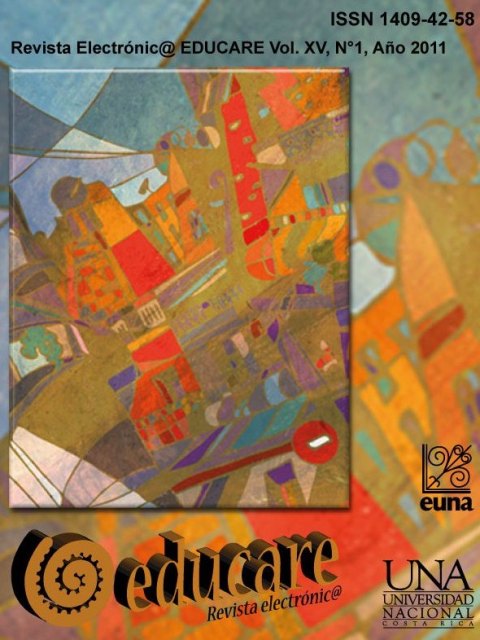Language: More than a Mechanism for Communication
DOI:
https://doi.org/10.15359/ree.15-1.12Keywords:
language, integral language, learning, teaching of spanish, communicationAbstract
The objective of this paper is to study the importance of language in the learning process of individuals, in contrast to the traditional view that has predominated in the teaching of language and its incidence in the educational field. An analysis is performed from the different perspectives of experts who have studied the language, its learning implications and language development of individuals throughout their lives. This paper brings up the need to establish pedagogical mechanisms to approach a new vision in the teaching of language in any area, considering language as a tool for learning and as a way to reach full expression in all forms of education.
References
Arellano, S. (2002). La lectura comprensiva en el currículo escolar. Educación Primaria y
Educación Secundaria Obligatoria. España: Gobierno de Navarra. Departamento de
Educación y Cultura. Recuperado de http://www.pnte.cfnavarra.es/bibliotecasescolares/
blitz_files/Blitzamar1%20cas.pdf
Ellis, J. M. (1994). Language, Thought and Logic (Rethinking Theory) [Lenguaje, pensamiento
y lógica (Repensar la teoría)]. Evanston, Illinois, United States: Northwestern University
Goodman K. (2008). El lenguaje integral: un camino fácil para el desarrollo del lenguaje. En M.
I. Borrero (Comp.), Lecturas complementarias para los maestros. Leer y escribir con los
niños (pp. 107-126). Colombia: Fundación Corona. Recuperado de http://www.fcorona.org/
descargas/publicaciones/educacion/EDU_47_LeerEscribir.pdf#page=108
Olson, D. (1999). El mundo sobre el papel. El impacto de la escritura y la lectura en la estructura
del conocimiento. España: Gedisa.
Ratey, J. (2003). El cerebro: manual de instrucciones. Barcelona: Random House.
Downloads
Published
How to Cite
Issue
Section
License
1. In case the submitted paper is accepted for publication, the author(s) FREELY, COSTLESS, EXCLUSIVELY AND FOR AN INDEFINITE TERM transfer copyrights and patrimonial rights to Universidad Nacional (UNA, Costa Rica). For more details check the Originality Statement and Copyright Transfer Agreement
2. REUTILIZATION RIGHTS: UNA authorizes authors to use, for any purpose (among them selfarchiving or autoarchiving) and to publish in the Internet in any electronic site, the paper´'s final version, both approved and published (post print), as long as it is done with a non commercial purpose, does not generate derivates without previous consentment and recognizes both publisher's name and authorship.
3. The submission and possible publication of the paper in the Educare Electronic Journal is ruled by the Journal’s editorial policies, the institutional rules of Universidad Nacional and the laws of the Republic of Costa Rica. Additionally, any possible difference of opinion or future dispute shall be settled in accordance with the mechanisms of Alternative Dispute Resolution and the Costa Rican Jurisdiction.
4. In all cases, it is understood that the opinions issued are those of the authors and do not necessarily reflect the position and opinion of Educare, CIDE or Universidad Nacional, Costa Rica. It is also understood that, in the exercise of academic freedom, the authors have carried out a rogorous scientific-academic process of research, reflection and argumentation thar lays within the thematic scope of interest of the Journal.
5. The papers published by Educare Electronic Journal use a Creative Commons License:















 The articles published by Educare Electronic Journal can be shared with a Creative Commons License:
The articles published by Educare Electronic Journal can be shared with a Creative Commons License: 



